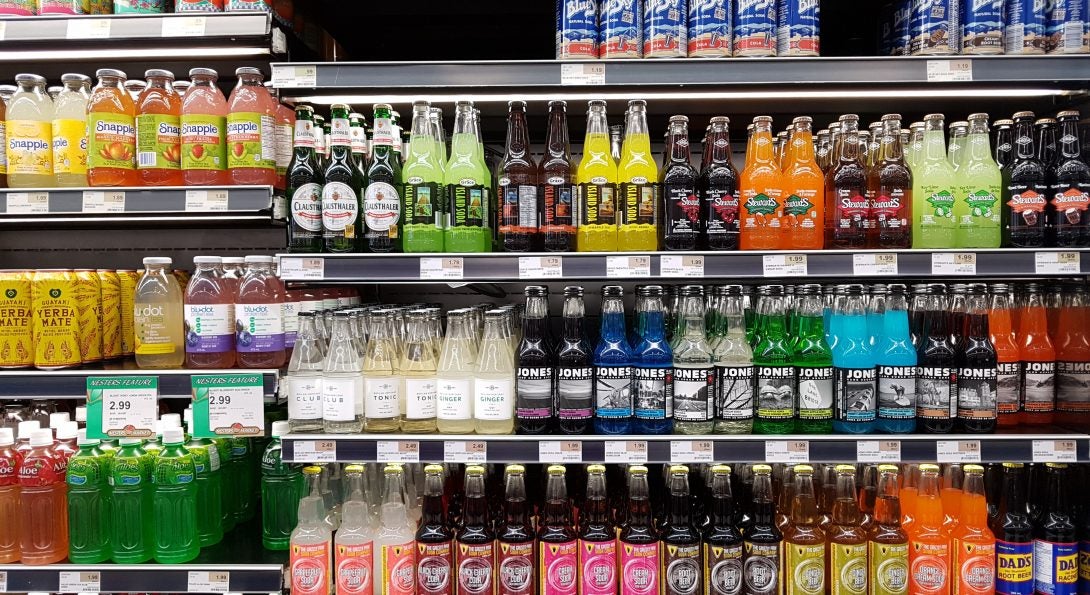P3RC Research Briefs Summarize Evidence on the Impacts of SSB Taxes in the United States

Sugar-sweetened beverages (SSBs) are the leading source of added sugars in the US diet, and their consumption is linked with a range of health harms, including obesity, type 2 diabetes, and cardiovascular disease. In response, SSB taxes (some of which have also applied to artificially sweetened beverages) have been implemented in 8 local US jurisdictions, one of which later repealed its tax. In a series of P3RC briefs, researchers have summarized the results of studies examining the impacts of US SSB taxes on prices, demand, substitution to untaxed beverages and food items, and employment.
Prices and Tax Pass-Through: Taxes implemented in the US to date have ranged from 1-2 cents per ounce. For these taxes to reduce consumption, they must first be passed through to consumers in the form of higher prices. Studies examining tax pass-through found that 70% of the amount of local US SSB taxes, on average, has been passed through to consumers, although results have varied substantially across studies. Estimates of tax pass-through were similar, on average, in jurisdictions with lower compared to higher tax rates and across studies using retail scanner versus store audit data.
Demand: Studies examining SSB tax impacts on demand for SSBs have found, on average, a 20% reduction in demand following tax implementation, although results varied substantially across studies. The tax-related price elasticity of demand (percent change in quantity demanded resulting from a 1% increase in price due to the SSB tax) was found to be -1.5 on average, suggesting that a tax that led to a 20% increase in prices would be expected to reduce the demand for SSBs by 30%. Estimated impacts on demand were similar, on average, across study data sources, i.e., scanner data on store volume sold, purchasing data, and consumption data.
Substitution to Untaxed Beverages and Foods and Cross-Border Shopping: A potential concern with local-level SSB taxes is that consumers might avoid the taxes by shopping across the border of local taxing jurisdictions. Studies examining this found that approximately one-quarter of the reduction in demand from SSB taxes was offset by cross-border shopping on average. Another concern is that consumers may substitute from SSBs to untaxed beverages such as sweetened milk or foods such as sweets or snacks which may also pose health risks. Studies examining potential substitution effects of SSB taxes to foods have been limited with mixed results. A study in Philadelphia, PA, found no evidence of substitution to sweets or salty snacks, while in Seattle, WA, there was evidence of substitution to sweets but not salty snacks. Studies in both cities found post-tax decreases in grams of sugar purchased or sold after accounting for potential substitution to other sources of sugar.
Employment: An argument made against SSB taxes is that they will lead to job losses. However, there are a number of reasons why we might not see any job losses including the fact that consumers are likely to reallocate spending to other goods and services, including untaxed beverages which are often produced by the same companies that produce taxed products, and the government will spend the revenue generated by the SSB taxes. Two studies of the Philadelphia, PA, tax and one of the San Francisco, CA, tax have evaluated this empirically. A study in Philadelphia found no pre-post changes in new monthly unemployment claim filings overall or for specific industries likely to be affected by the tax. Another study in Philadelphia and a study in San Francisco found no negative impacts on the number of people employed overall or in specific industries likely to be affected by the tax.
In conclusion, the results summarized in this series of P3RC research briefs suggest that SSB taxes can be effective in increasing prices and reducing demand for taxed beverages and show no evidence of the taxes causing job losses. While some studies have found evidence of cross-border shopping and substitution to other foods and beverages in response to SSB taxes, these do not fully offset the impact of the taxes. These results suggest that SSB taxes can play an important role in reducing SSB consumption and associated diseases.